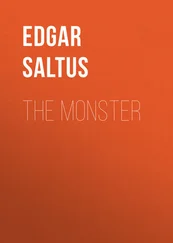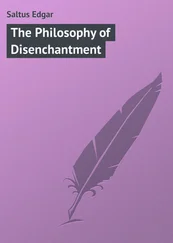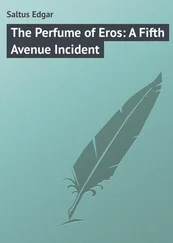Edgar Saltus - The Truth About Tristrem Varick - A Novel
Здесь есть возможность читать онлайн «Edgar Saltus - The Truth About Tristrem Varick - A Novel» — ознакомительный отрывок электронной книги совершенно бесплатно, а после прочтения отрывка купить полную версию. В некоторых случаях можно слушать аудио, скачать через торрент в формате fb2 и присутствует краткое содержание. Жанр: foreign_prose, на английском языке. Описание произведения, (предисловие) а так же отзывы посетителей доступны на портале библиотеки ЛибКат.
- Название:The Truth About Tristrem Varick: A Novel
- Автор:
- Жанр:
- Год:неизвестен
- ISBN:нет данных
- Рейтинг книги:4 / 5. Голосов: 1
-
Избранное:Добавить в избранное
- Отзывы:
-
Ваша оценка:
- 80
- 1
- 2
- 3
- 4
- 5
The Truth About Tristrem Varick: A Novel: краткое содержание, описание и аннотация
Предлагаем к чтению аннотацию, описание, краткое содержание или предисловие (зависит от того, что написал сам автор книги «The Truth About Tristrem Varick: A Novel»). Если вы не нашли необходимую информацию о книге — напишите в комментариях, мы постараемся отыскать её.
The Truth About Tristrem Varick: A Novel — читать онлайн ознакомительный отрывок
Ниже представлен текст книги, разбитый по страницам. Система сохранения места последней прочитанной страницы, позволяет с удобством читать онлайн бесплатно книгу «The Truth About Tristrem Varick: A Novel», без необходимости каждый раз заново искать на чём Вы остановились. Поставьте закладку, и сможете в любой момент перейти на страницу, на которой закончили чтение.
Интервал:
Закладка:
Tristrem, as one led in leash, moved from the table and passed into the outer room. Miss Raritan was at the piano. Beyond, a group of women sat hushed and mute; and still the resilient waves of song continued. One by one the men issued noiselessly from the inner room. And then, soon, the voice sank and died away like a chorus entering a crypt.
Miss Raritan rose from the piano. As she did so, Weldon, as it becomes a host, hastened to her. There was a confused hum, a murmur of applause, and above it rose a discreet and prolonged brava that must have come from the novelist. Weldon, seemingly, was urging her to sing again. The women had taken up anew some broken thread of gossip, but the men were at the piano, insisting too. Presently Miss Raritan resumed her seat, and the men moved back. Her fingers rippled over the keys like rain. She stayed them a second, and then, in a voice so low that it seemed hardly human, and yet so insistent that it would have filled a cathedral and scaled the dome, she began a ballad that breathed of Provence:
"O Magali, ma bien aimée,
Fuyons tous deux sous la ramée
Au fond du bois silencieux…"
When she had finished, Tristrem started. The earliest notes had sent the blood pulsing through his veins, thrilling him from finger-tips to the end of the spine, and then a lethargy enveloped him and he ceased to hear, and it was not until Miss Raritan stood up again from the piano that he was conscious that he had not been listening. He had sat near the entrance to the dining-room, and when the applause began afresh he passed out into the hall, found his coat and hat, and left the house.
As he walked down Irving Place he fell to wondering who it was that he had heard complain of being obliged to give up cigarettes, not on account of parental interference but because of a tournament. Yet, after all, what matter did it make? Certainly, he told himself, the Weldons seemed to live very well. Royal must be making money. Mrs. Weldon – Nanny, as Royal called her – was a nice little thing, somewhat – h'm, somewhat – well, not quite up to Royal. She looked like that girl in Munich, the girl that lived over the way, only Mrs. Weldon was prettier and dressed better, much better. Du hast die schönsten Augen. Munich wasn't a bad place, but what a hole Innsprück was. There was that Victoria Cross fellow; whatever became of him? He drank like a fish; it must have caught him by this time. H'm, he would give me the address of his shoemaker. I ought to have taken more from that man in Paris. Odd that the Cenerentola was the last thing I should have heard there. The buffo was good, so was the contralto. She sings much better. What a voice! what a voice! Now, which was the more perfect, the voice or the girl? Let me see, which is the better fulfilled, the odor of the lily or the lily itself? Tulips I never cared for… That is it, then. I wonder, though —
Tristrem had reached the house in Waverley Place. He let himself in with a latch-key, and went to his room. There he sat a while, companioned only by his thoughts. Before he fell asleep, his patriotism was riveted. A land that could produce such a specimen of girlhood outvalued Europe, Asia, and Africa combined – aye, a thousand times – and topped and exceeded creation.
III
Among the effects and symptoms of love, there is an involuntary action of the mind which, since the days of Stendhal, has been known as crystallization. When a man becomes interested in a woman, when he pictures her not as she really is, but as she seems to him – as she ought to be, in fact – he experiences, first, admiration; second, desire; third, hope; and, behold, love or its counterfeit is born.
This crystallization affects the individual according to his nature. If that nature be inexperienced, unworn – in a word, if it be virginal, its earliest effects are those of a malady. On the other hand, if the nature on which it operates has received the baptism of fire, its effect is that of a tonic. To the one it is a fever, to the other a bugle-call. In the first instance, admiration is pursued by self-depreciation, desire is pinioned before conventional obstacles, and hope falters beneath a weight of doubt. In the second, admiration, desire, and hope are fused into one sentiment, the charm of the chase, the delight of the prospective quarry. As an example, there is Werther, and there is also Don Juan.
Now Tristrem Varick had never known a mother, sisters he had none, the feminine had been absent from his life, but in his nature there was an untarnishable refinement. During his student-days at Harvard, and throughout his residence abroad, there had been nothing of that which the French have agreed to denominate as bonnes fortunes . Such things may have been in his path, waiting only to be gathered, but, in that case, certain it is that he had passed them by unheeded. To use the figurative phrase, he was incapable of stretching his hand to any woman who had not the power of awakening a lasting affection; and during his wanderings, and despite, too, the example and easy morals of his comrades, no such woman having crossed his horizon, he had been innocent of even the most fugitive liaison. Nevertheless, the morning after the dinner in Gramercy Park, crystallization had done its work. He awoke with the surprise and wonder of an inexperienced sensation; he awoke with the consciousness of being in love, wholly, turbulently, absurdly in love with a girl to whom he had not addressed a single word.
The general opinion to the contrary notwithstanding, there are, after all, very few people who know what love really is. And among those that know, fewer there are that tell. A lexicographer, deservedly forgotten, has defined it as an exchange of fancies, the contact of two epiderms. Another, wiser if less epigrammatic, announced it as a something that no one knew what, coming no one knew whence, and ending no one knew how. But in whatever fashion it may be described, one thing is certain, it has been largely over-rated.
In the case of Tristrem Varick it appeared in its most perfect form. The superlative is used advisedly. Love has a hundred aspects, a thousand toilets. It may come at first sight, in which event, if it be enduring, it is, as Balzac has put it, a resultant of that prescience which is known as second sight. Or, it may come of the gradual fusion of two natures. It may come of propinquity, of curiosity, of sympathy, of hatred. It may come of the tremors of adolescence, the mutual attraction of one sex for the other; and, again, it may come of natural selection, of the discernment which leads a man through mazes of women to one in particular, to the woman who to him is the one woman in the world and manacles him at her feet. If Tristrem Varick had not met Miss Raritan, it is more than probable that he never would have known the meaning of the word.
When the first surprise at the discovery waned, delight took its place. He saw her amber eyes, he recalled as she had crossed the room the indolent undulation of her hips, he breathed the atmosphere of health which she exhaled, and in his ears her voice still rang. The Non più mesta of her song seemed almost a promise, and the O Magali an invitation. He recalled the movement of her lips, and fell to wondering what her name might be. At first he fancied that it might be Stella; but that, for some occult reason which only a lover would understand, he abandoned for Thyra, a name which pleasured him awhile and which he repeated aloud until it became sonorous as were it set in titles. But presently some defect presented itself, it sounded less apt, more suited to a blue-eyed daughter of a viking than to one so brune as she. Decidedly, Thyra did not suit her. And yet her name might be something utterly commonplace, such as Fanny, for instance, or Agnes, or Gertrude. But that was a possibility which he declined to entertain. When a girl is baptized, the mother, in choosing the name, should, he told himself, think of the lover who will one day pronounce it. And what had her mother chosen? It would be forethought indeed if she had selected Undine or even Iseult; but what mother was ever clairvoyant enough for that?
Читать дальшеИнтервал:
Закладка:
Похожие книги на «The Truth About Tristrem Varick: A Novel»
Представляем Вашему вниманию похожие книги на «The Truth About Tristrem Varick: A Novel» списком для выбора. Мы отобрали схожую по названию и смыслу литературу в надежде предоставить читателям больше вариантов отыскать новые, интересные, ещё непрочитанные произведения.
Обсуждение, отзывы о книге «The Truth About Tristrem Varick: A Novel» и просто собственные мнения читателей. Оставьте ваши комментарии, напишите, что Вы думаете о произведении, его смысле или главных героях. Укажите что конкретно понравилось, а что нет, и почему Вы так считаете.












